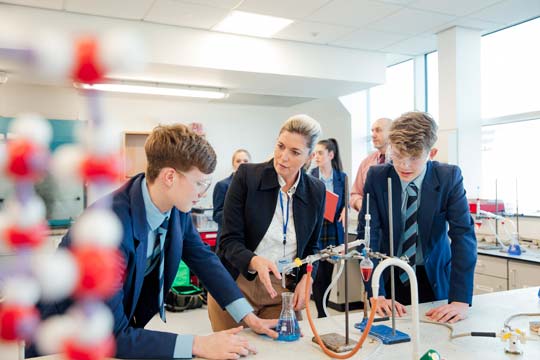Postgraduate Teacher Training

Study to be a teacher with us
If you're a graduate who would like to teach, we've been training teachers for over 180 years.
Government funding for teacher training courses in 2025-26* is now available, and there are tax-free bursaries of up to £31,000 for some PGCE courses. Find out more on our postgraduate funding page.
If there's a course you already know you want to study you can search for it below, or scroll down the page to see the full range of postgrad teacher training we offer.
Study
Postgraduate Teaching Courses















PGCE Primary Education with Special Educational Needs and Disability
Postgraduate


